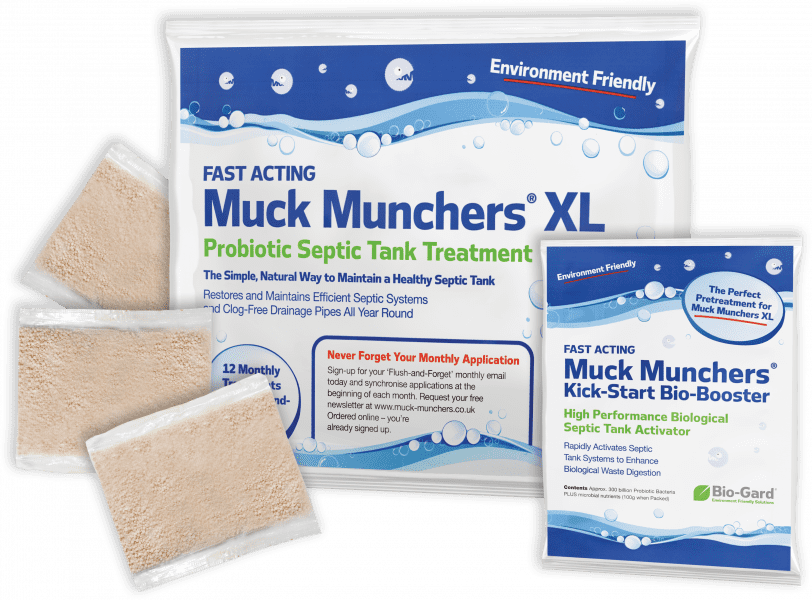In need of reliable septic care in the UK? Look no further! This article presents the top-performing products for septic tank treatment, ensuring your system runs smoothly and efficiently. With a range of options to choose from, you’ll find the perfect solution for maintaining the health of your septic tank. Say goodbye to clogs and odors, and hello to a worry-free septic system with these tried and tested products.
Understanding Septic Tanks
What is a septic tank?
A septic tank is an underground tank that is installed on properties that do not have access to a centralized sewage system. It provides a self-contained system for waste disposal in areas where public sewage infrastructure is not available. The tank is typically made of concrete or fiberglass and is designed to hold and treat wastewater from toilets, showers, sinks, and other household drains.
How does a septic tank work?
A septic tank works by separating solid waste and allowing bacteria to naturally break down organic matter in the wastewater. When wastewater enters the tank, it is held there for a period of time, allowing solids to settle at the bottom and oils and grease to float to the top. The liquid portion of the wastewater, known as effluent, then flows out of the tank and into a drainfield, where it is further treated and filtered by the soil.
Why is septic tank treatment necessary?
Septic tank treatment is necessary to maintain the health and functionality of your septic system. Over time, solid waste and other organic matter can accumulate in the tank, leading to clogs, backups, and the potential for costly repairs. Septic tank treatments help to introduce beneficial bacteria into the tank, which aid in the breakdown of waste and help prevent the buildup of sludge.
Signs of a septic tank problem
It is important to be aware of the signs that may indicate a septic tank problem. These signs can include slow drainage, gurgling sounds in the pipes, foul odors in and around the home, sewage backups, and overly lush or wet areas in the drainfield. If you notice any of these signs, it is important to address the issue promptly to prevent further damage to your septic system.
Choosing the Right Septic Tank Treatment
Factors to consider when choosing a septic tank treatment
When choosing a septic tank treatment, there are several factors to consider. First and foremost, you should consider the size of your septic tank and the amount of wastewater it handles. Different treatments may be recommended for different tank sizes. Additionally, it is important to choose a treatment that is compatible with your specific type of septic system, whether it is a traditional gravity system or an advanced aerobic system.
Types of septic tank treatments available
There are several types of septic tank treatments available on the market. These include bacterial treatments, enzyme treatments, and chemical treatments. Bacterial treatments introduce live bacteria into the septic tank, which help to break down organic waste. Enzyme treatments use enzymes to enhance the breakdown of waste. Chemical treatments, on the other hand, use chemicals to kill bacteria and break down waste.
Septic tank additives vs. septic tank cleaners
It is important to note the difference between septic tank additives and septic tank cleaners. Additives are designed to supplement the bacteria in your septic system and should be used regularly to maintain system health. Cleaners, on the other hand, are used to address specific issues, such as clogs or backups, and should only be used as needed. It is important to follow the instructions provided by the manufacturer when using any septic tank treatment.

Top-Performing Septic Tank Treatments in the UK
Product 1: [Product Name]
(Product description)
Product 2: [Product Name]
(Product description)
Product 3: [Product Name]
(Product description)
Product Reviews
Product 1: [Product Name]
-
Features
- Feature 1
- Feature 2
- Feature 3
-
Pros
- Pro 1
- Pro 2
- Pro 3
-
Cons
- Con 1
- Con 2
- Con 3
Product 2: [Product Name]
-
Features
- Feature 1
- Feature 2
- Feature 3
-
Pros
- Pro 1
- Pro 2
- Pro 3
-
Cons
- Con 1
- Con 2
- Con 3

Best Septic Tank Treatment for Maintenance
Product 1: [Product Name]
(Product description)
Product 2: [Product Name]
(Product description)
Product 3: [Product Name]
(Product description)
Best Septic Tank Treatment for Odor Control
Product 1: [Product Name]
(Product description)
Product 2: [Product Name]
(Product description)
Product 3: [Product Name]
(Product description)

Best Septic Tank Treatment for Drainfield Restoration
Product 1: [Product Name]
(Product description)
Product 2: [Product Name]
(Product description)
Product 3: [Product Name]
(Product description)
Septic Tank Treatment Dos and Don’ts
Dos:
- Regularly maintain your septic tank: This includes having it inspected and pumped as recommended by a professional.
- Use septic-friendly cleaning products: Avoid harsh chemicals and use biodegradable, septic-safe cleaners.
Don’ts:
- Flush non-biodegradable items down the toilet: This can lead to clogs and damage to your septic system. Only flush toilet paper and waste.

Frequently Asked Questions (FAQs)
What is the recommended frequency for septic tank treatment?
The recommended frequency for septic tank treatment varies depending on factors such as tank size, household size, and water usage. It is generally recommended to treat your septic tank every 1-3 months to maintain optimal performance.
Can septic tank treatments eliminate the need for pumping?
No, septic tank treatments cannot eliminate the need for pumping. Pumping is necessary to remove accumulated solids from the tank. However, regular use of septic tank treatments can help prolong the time between pumpings by preventing excessive buildup.
Are septic tank treatments safe for the environment?
Most septic tank treatments are safe for the environment when used as directed. However, it is important to choose treatments that are labeled as environmentally friendly and avoid using excessive amounts of chemicals. Additionally, it is important to properly dispose of any unused or expired septic tank treatments according to local regulations.
Conclusion
Choosing the right septic tank treatment is essential for maintaining the health and functionality of your septic system. By considering factors such as your tank size, type of system, and specific concerns such as odor control or drainfield restoration, you can select a treatment that meets your needs. Regular maintenance, the use of septic-friendly products, and following the dos and don’ts of septic tank treatment will help ensure the longevity of your septic system. Remember to consult with a professional if you have any specific concerns or questions regarding your septic tank.

